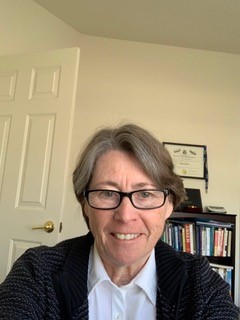- Home
- Join/Renew
- Find A Psychologist
- Learn
- Resources
- Advocate
- Members
- About Us
- Advertise
- Donate
|
 Approved for Nevada Psychologists, MFTs and LCSWs.
NPA is approved by the American Psychological Association to sponsor continuing education for psychologists. NPA maintains responsibility for this program and its content. Click here to registerAbout the WorkshopThis presentation will address the dramatic increase of Antipsychotic medications being used for children from preschool to 18 years of age. Other psychotropic medications will also be discussed. There is growing evidence that many medications for children and adolescents are being prescribed with very weak evidence of efficacy and poor understanding of side effects. The quality of regulation of these medication, and current clinical practice of using them are also raising concerns. For example, there is an enormous increase of using antipsychotics ,like risperidone, for very young child to treat irritability. Children of color, children in foster care, and children in low-income households are more likely to receive these medications. The presentation will address the benefit to harm ratio for Atypical Antipsychotics. Alternative, evidenced based psychosocial treatments will be reviewed. Learning ObjectivesAt the end of this program, participants will be able to:
About the Speaker
She is a strong advocate for evidenced base treatment for children and families. She is a certified therapist and Level 1 trainer for Parent Child Interaction therapy (PCIT). Dr. Cahill has consulted to many human services agencies, including the New Jersey Division of Child Permanency and Protection, the Nevada Division of Child and Family Services, South Carolina CPS, and Colorado CPS and Acenda. An active trainer, she has provided numerous workshops to human service professionals in the community. An overarching goal of her activities is to bring academic expertise and evidence-based practice into community settings. Dr. Cahill's CV AudienceThis presentation is intended for psychologists, other licensed mental health providers, and graduate students of psychology. General InformationZoom Login Link and Handout Materials Zoom webinar login link and Handout materials will be sent out electronically to all attendees no later than one week prior to workshop date. Printed handout materials are not available for purchase as this CE training is being offered remotely. Workshop Location Live, virtual webinar via Zoom. Refunds & Grievance Policies Participants may direct questions or complaints to NPA to 888-654-0050. An administrative fee of $30 will be charged for cancellation of registration. Please note, no refunds will be granted after 09/15/2023. Approval Approved by Nevada Board of Psychological Examiners. Nevada Psychological Association (NPA) is approved by the American Psychological Association to offer continuing education for psychologists. NPA maintains responsibility for the program and its content. NPA will issue certificates of completion. APA CE rules require that we only issue credits to those who attend the entire workshop. Those logging into the Zoom webinar more than 15 minutes late or logging off before the entire workshop is completed will not receive CE credits (i.e. partial CE credit will not be issued). Closed Captions Live audio captions will be provided for this event. If you need additional disability-related accommodations, please contact us by email us at [email protected] or by phone (888) 654-0050. Requests should be made at least two weeks in advance of workshop date. References Hoekstra, P. J., & Dietrich, A. (2022). First do no harm: use off-label antipsychotic medication in children and adolescents with great caution. European child & adolescent psychiatry, 31(1), 1–3. https://doi.org/10.1007/s00787-022-01950-7 Pillay J, Boylan K, Newton A, Hartling L, Vandermeer B, Nuspl M, MacGregor T, Featherstone R, Carrey N. Harms of Antipsychotics in Children and Young Adults: A Systematic Review Update. Can J Psychiatry. 2018 Oct;63(10):661-678. doi: 10.1177/0706743718779950. Epub 2018 Jun 4. PMID: 29865900; PMCID: PMC6187435. Loy JH, Merry SN, Hetrick SE, Stasiak K. Atypical antipsychotics for disruptive behaviour disorders in children and youths. Cochrane Database Syst Rev. 2017 Aug 9;8(8):CD008559. doi: 10.1002/14651858.CD008559.pub3. PMID: 28791693; PMCID: PMC6483473. Guber, K. M., Cortes, N. D., & Duan, L. (2022). Risk of Obesity Among Children Prescribed Atypical Antipsychotics for Six Months or More. Journal of Child and Adolescent Psychopharmacology, 32(1), 52–60. https://doi.org/10.1089/cap.2021.0021 There is no potential conflict of interest and/or commercial support for this program or its presenter. |

 Dr. Janet Cahill has a Ph.D. in clinical psychology from Temple University. She was trained as a family therapist at the Philadelphia Child Guidance Clinic. Dr. Cahill is a Professor Emerita in the Department of Psychology at Rowan University. She served as chair and was the coordinator of Rowan University’s master’s program for Licensed Professional Counseling. Her private practice specializes in assessing abused and neglected children and their families. She has developed model protocols in parenting evaluations and recommendations for evidenced based treatments. She has expertise in evaluations and treatment for Factitious Disorder Imposed on Another (aka Munchausen by Proxy).
Dr. Janet Cahill has a Ph.D. in clinical psychology from Temple University. She was trained as a family therapist at the Philadelphia Child Guidance Clinic. Dr. Cahill is a Professor Emerita in the Department of Psychology at Rowan University. She served as chair and was the coordinator of Rowan University’s master’s program for Licensed Professional Counseling. Her private practice specializes in assessing abused and neglected children and their families. She has developed model protocols in parenting evaluations and recommendations for evidenced based treatments. She has expertise in evaluations and treatment for Factitious Disorder Imposed on Another (aka Munchausen by Proxy).





